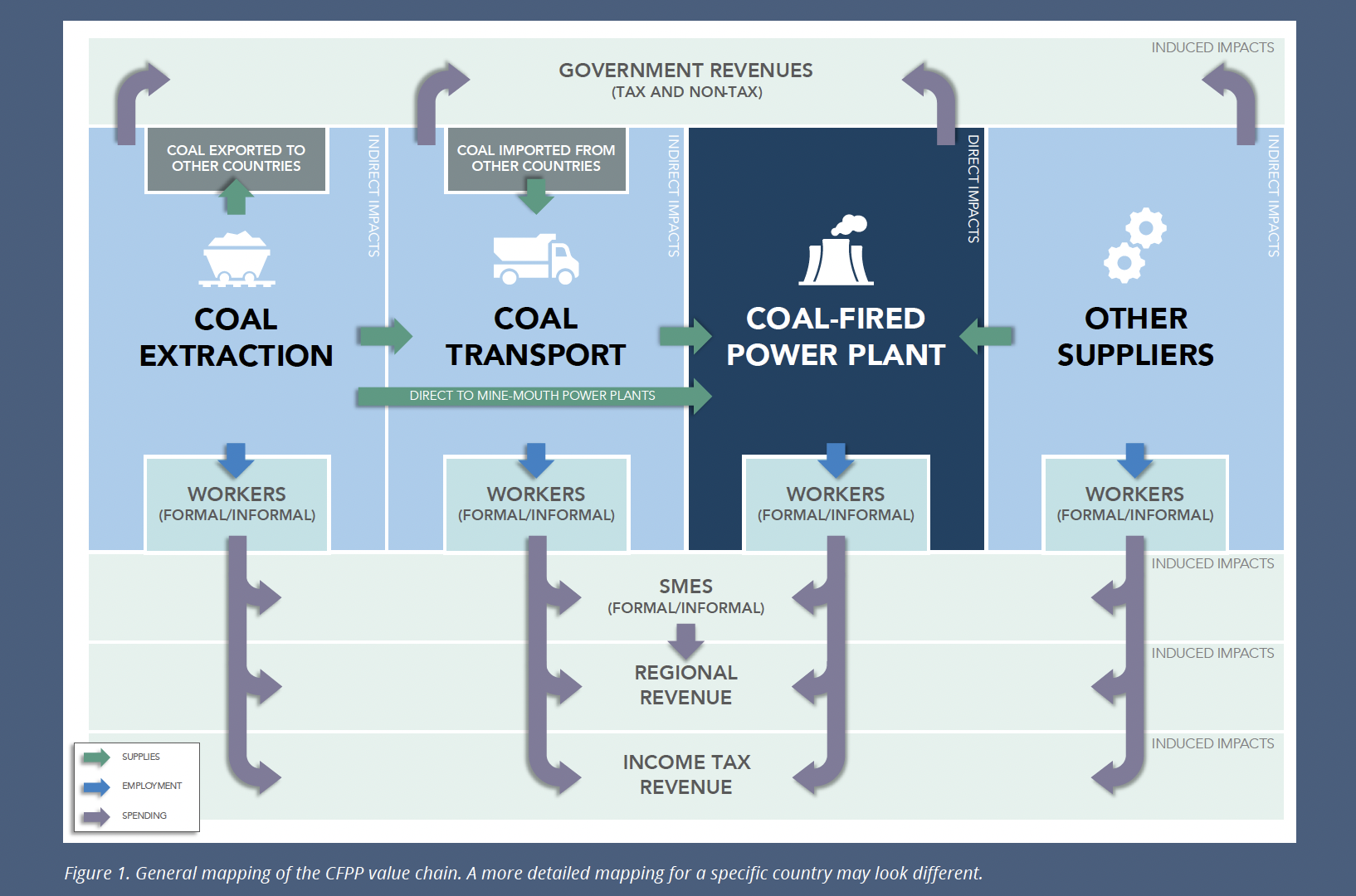How to implement the just transition of coal-fired power plants
The early retirement of coal-fired power plants (CFPPs) is a priority for countries shifting to net-zero economies. Because coal is deeply embedded in countries’ economic systems, such decarbonization activities can prompt an economic transformation that can yield opportunities for sustainable economic growth.
At the same time, retiring CFPPs can also have widespread negative socio-economic impacts along the CFPP value chain—primarily coal extraction, coal transport, and other suppliers—as well as on a country’s national economy. In addressing these impacts to ensure a just transition, countries can also enable the generation of opportunities afforded by decarbonization and the shift to a net-zero economy.
Impacts on the coal extraction industry should be paid special attention given the changing context of the international coal market. In the near future, coal extraction is not expected to be affected, as coal-producing countries are anticipated to export coal to meet high international demand brought on by the energy crisis in Europe and high demand in many fast-developing countries. However, coal demand will eventually decline and will impact coal extraction industries.
One of the largest expected impacts throughout the CFPP value chain is job loss. Addressing unemployment should consider possible temporal and geographical mismatches when it comes to job creation. Other potential impacts include personal distress, family disruptions, increased burdens for women, and pressures on government budget and infrastructure.
A community’s level of vulnerability to these negative impacts ought to be examined as well to estimate the severity of the potential impacts of early CFPP retirement. Factors influencing vulnerability include industry employment dependence in the CFPP value chain, education levels, and availability of natural resources for potential renewable energy generation.
A just transition in early coal retirement ensures that impacts are identified and managed. Conducting comprehensive quantitative analyses is one key just transition activity for identifying the impacts of a country’s specific early CFPP retirement pathway. Other just transition actions include promoting economic diversification; incorporating just transition in policies; conducting stakeholder engagement; and supporting financing.
By carrying out these actions during early CFPP retirement, a government can ensure not only that no one is left behind but also that the country can unlock opportunities from its shift to a net-zero economy.





